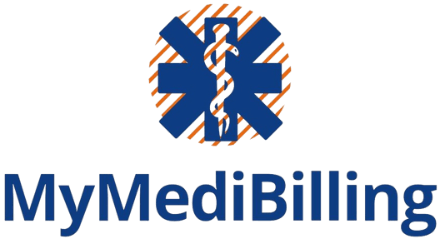Introduction
One of practice management software’s most game-changing features is its ability to streamline appointment scheduling. With the click of a button, healthcare providers can easily view their availability and schedule appointments for their patients. This not only saves time for both the provider and the patient but also reduces the likelihood of scheduling errors.
Additionally, many practice management software systems offer features such as automated appointment reminders, waitlist management, and online booking capabilities, further enhancing the efficiency of the scheduling process. By streamlining appointment scheduling, practice management software allows healthcare providers to focus on delivering quality patient care without the hassle of managing their schedules manually. Practice management software also offers integrated billing and invoicing capabilities, allowing healthcare providers to easily manage financial transactions.
With the ability to generate invoices, process payments, and track outstanding balances, healthcare providers can ensure that they are being compensated for their services on time. Additionally, many practice management software systems offer insurance verification and claims management features, further simplifying the billing process. By integrating billing and invoicing into their practice management software, healthcare providers can streamline their financial operations and improve their overall revenue cycle management.
Key Takeaways
- Streamlined appointment scheduling helps practices efficiently manage their patient appointments and reduce scheduling errors.
- Integrated billing and invoicing features allow for seamless and accurate billing processes, improving practice revenue and financial management.
- Automated patient communication tools help practices stay connected with patients, improving patient engagement and satisfaction.
- Comprehensive electronic health records enable practices to efficiently manage patient health information and improve patient care.
- Customizable reporting and analytics provide valuable insights for practices to make informed decisions and improve operational efficiency.
Integrated Billing and Invoicing
Another game-changing feature of practice management software is its ability to automate patient communication. With features such as automated appointment reminders, follow-up messages, and patient education materials, healthcare providers can easily stay connected with their patients. This not only improves patient engagement and satisfaction but also reduces the likelihood of missed appointments and non-compliance with treatment plans.
Additionally, many practice management software systems offer secure messaging capabilities, allowing healthcare providers to communicate with their patients in a HIPAA-compliant manner. By automating patient communication, practice management software helps healthcare providers build stronger relationships with their patients and improve the overall quality of care. In addition to streamlining appointment scheduling and patient communication, practice management software also offers comprehensive electronic health records (EHR) capabilities.
With features such as charting, documentation, and e-prescribing, healthcare providers can easily manage their patients’ health information in a secure and organized manner. This not only improves the efficiency of clinical workflows but also enhances the accuracy and accessibility of patient records. Additionally, many practice management software systems offer interoperability with other healthcare IT systems, allowing for seamless exchange of patient information across different care settings.
By offering comprehensive EHR capabilities, practice management software helps healthcare providers deliver more coordinated and effective care to their patients.
Automated Patient Communication
Customizable reporting and analytics are another game-changing feature of practice management software. With the ability to generate custom reports and analyze key performance indicators, healthcare providers can gain valuable insights into their practice operations. This not only helps them identify areas for improvement but also allows them to make data-driven decisions to optimize their workflows.
Additionally, many practice management software systems offer benchmarking capabilities, allowing healthcare providers to compare their performance against industry standards and best practices. By offering customizable reporting and analytics, practice management software empowers healthcare providers to continuously improve their practice operations and deliver better outcomes for their patients. Practice management software also offers secure data storage and compliance features, ensuring that healthcare providers can safely store and access their patients’ information.
With features such as data encryption, access controls, and audit trails, practice management software helps healthcare providers maintain the privacy and security of their patients’ health information. Additionally, many practice management software systems offer compliance with industry regulations such as HIPAA, ensuring that healthcare providers can meet the legal requirements for protecting patient data. By offering secure data storage and compliance features, practice management software gives healthcare providers peace of mind knowing that their patients’ information is safe and protected.
Comprehensive Electronic Health Records
| Feature | Description |
|---|---|
| Appointment Scheduling | Allows for easy scheduling and management of patient appointments. |
| Electronic Health Records (EHR) | Enables digital storage and organization of patient health records. |
| Medical Billing | Streamlines the billing process and helps with insurance claims. |
| Telemedicine Integration | Facilitates virtual appointments and remote patient care. |
| Reporting and Analytics | Provides insights into practice performance and patient data. |
| Patient Portal | Allows patients to access their health information and communicate with the practice. |
| Inventory Management | Helps in tracking and managing medical supplies and inventory. |
| Document Management | Organizes and stores important practice documents and files. |
| Workflow Automation | Automates repetitive tasks and improves practice efficiency. |
| Compliance and Security | Ensures adherence to healthcare regulations and data security measures. |
Time-saving task automation is another game-changing feature of practice management software. With features such as automated appointment reminders, insurance verification, and claims management, healthcare providers can reduce the time and effort required to manage administrative tasks. This not only allows them to focus on delivering quality care to their patients but also improves the overall efficiency of their practice operations.
Additionally, many practice management software systems offer workflow automation capabilities, allowing healthcare providers to streamline their clinical and administrative processes. By offering time-saving task automation, practice management software helps healthcare providers maximize their productivity and minimize their administrative burden.
Conclusion
Practice management software offers a wide range of game-changing features that can significantly improve the efficiency and effectiveness of healthcare practices.
From streamlined appointment scheduling to comprehensive electronic health records, customizable reporting, and analytics to secure data storage and compliance, practice management software empowers healthcare providers to deliver better care to their patients while optimizing their practice operations. By leveraging these game-changing features, healthcare providers can enhance their clinical workflows, improve patient engagement, and achieve better outcomes for their patients. As the healthcare industry continues to evolve, practice management software will play an increasingly important role in helping healthcare providers adapt to new challenges and deliver high-quality care in a rapidly changing environment.

